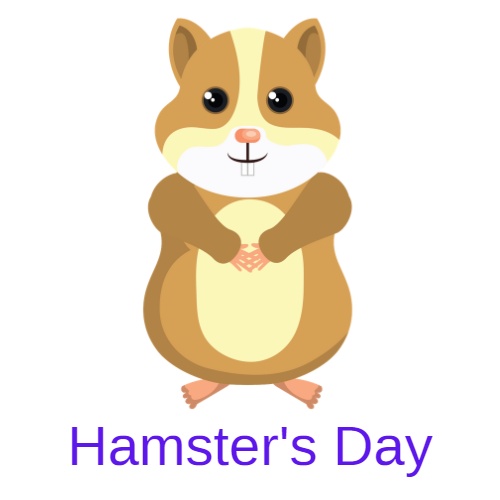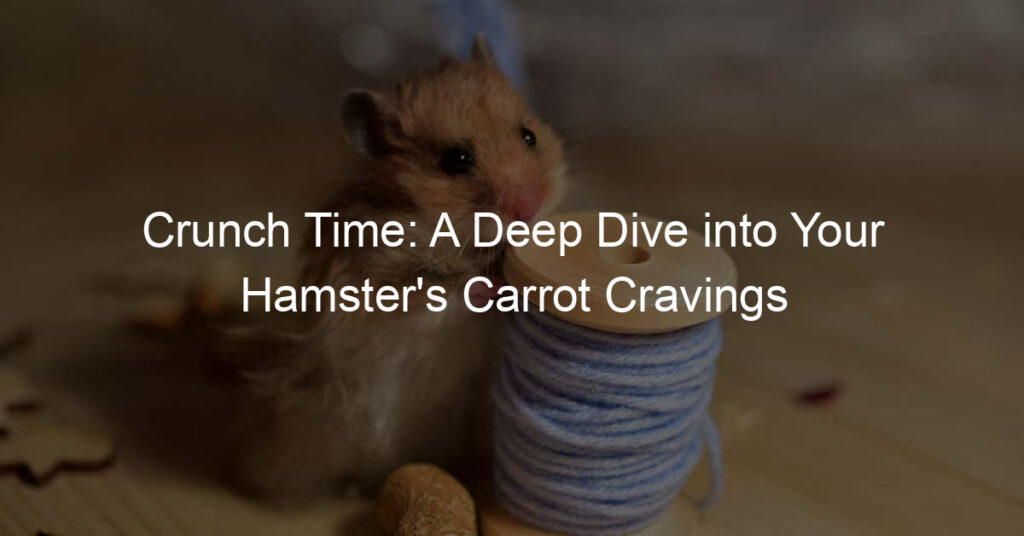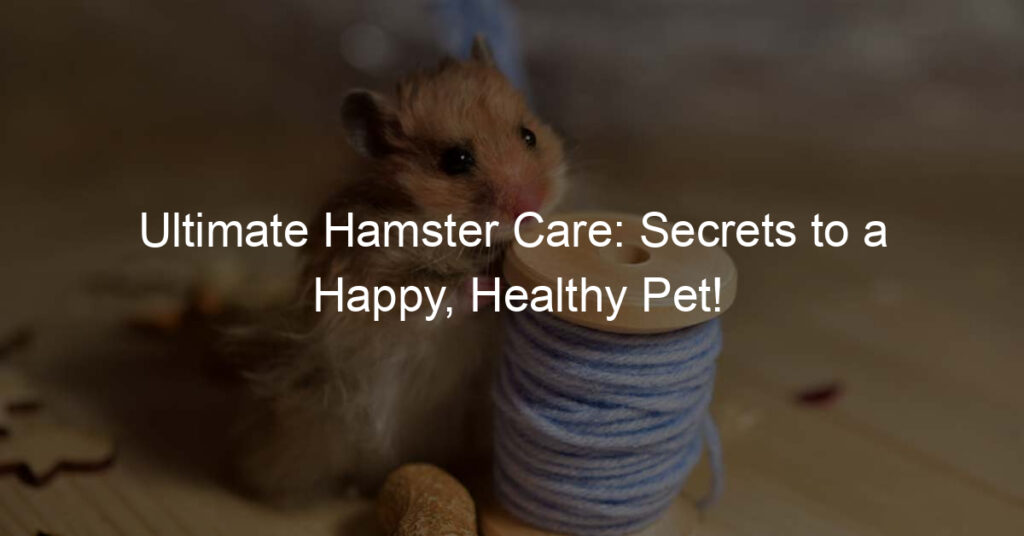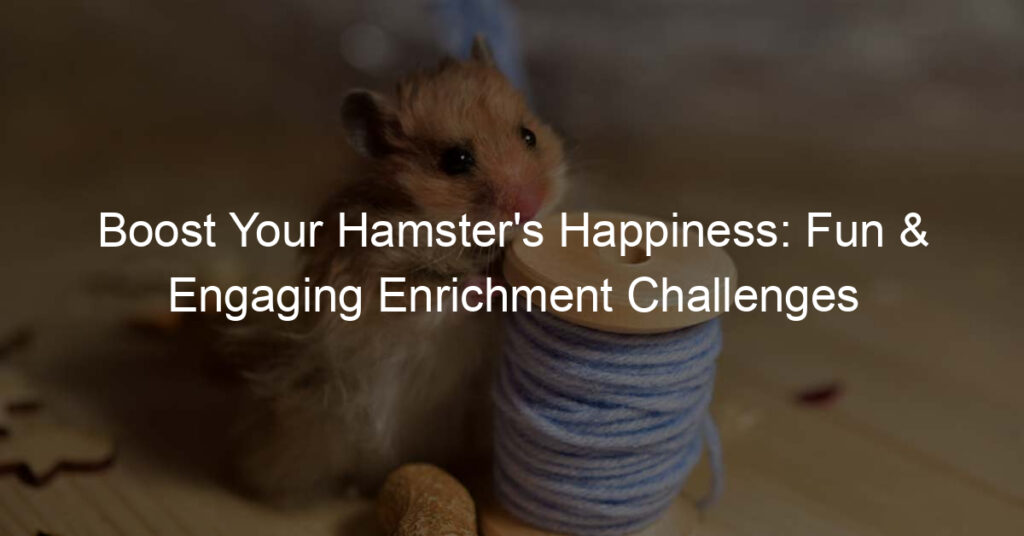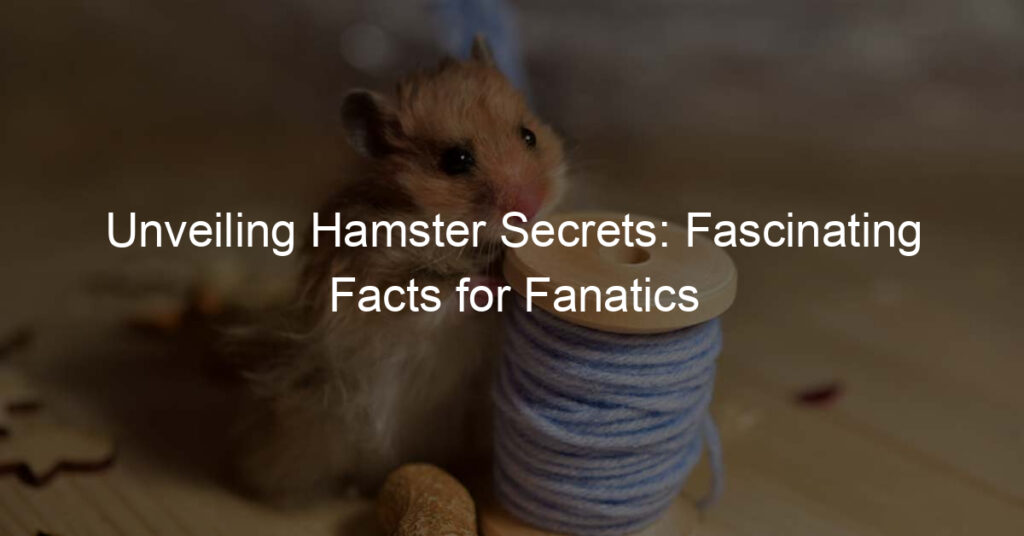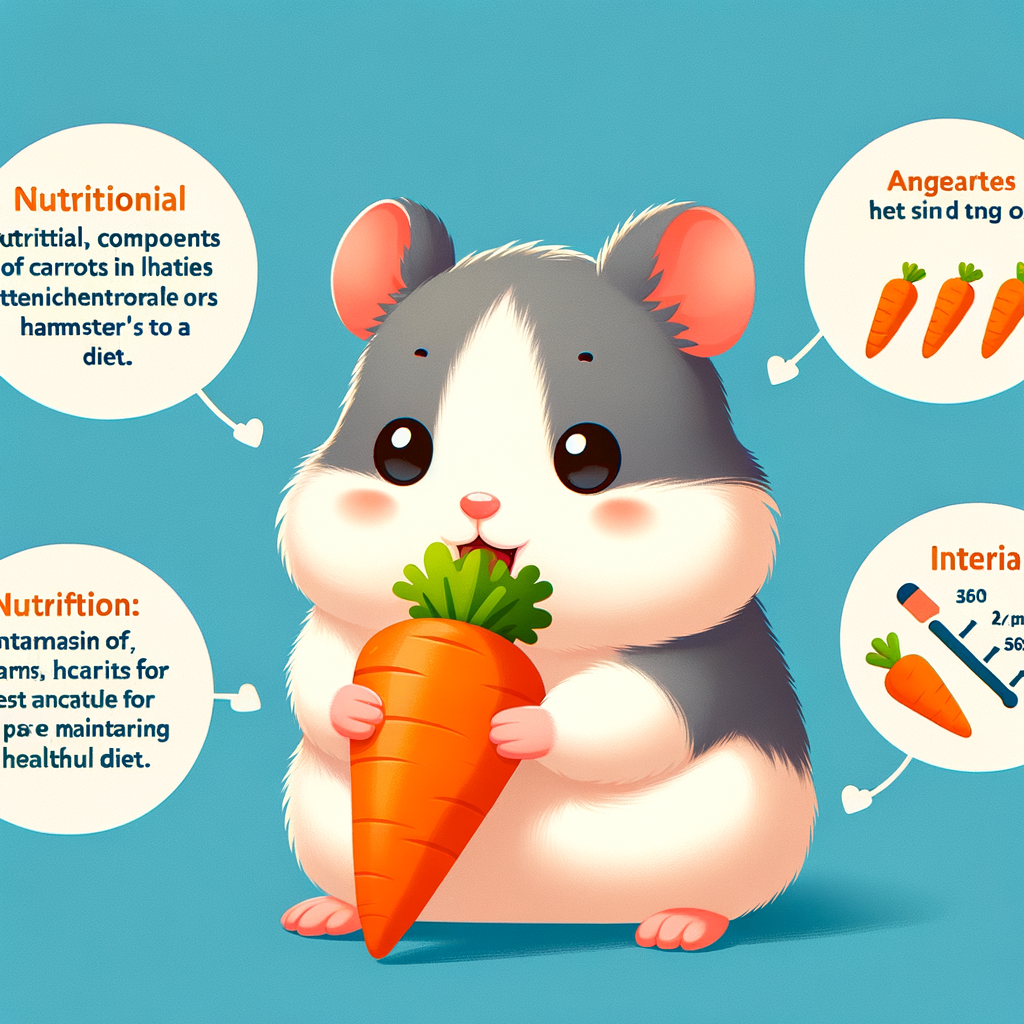
Introduction: Understanding Your Hamster’s Diet
Just like humans, hamsters also need a balanced diet to stay healthy and active. Understanding what your hamster should eat is crucial to ensure its well-being. This guide will help you gain insights into the dietary needs of your furry friend.
- Importance of a Balanced Diet for Hamsters
- Common Food Habits of Hamsters
A balanced diet for a hamster is not just about keeping them full. It’s about providing the right nutrients that help them grow, stay active, and live a long, healthy life. Hamsters need a mix of proteins, carbohydrates, fats, vitamins, and minerals. Without a balanced diet, hamsters can suffer from various health issues like obesity, diabetes, and heart disease.
Hamsters are omnivores, which means they eat both plants and meat. In the wild, they eat a variety of foods like seeds, fruits, vegetables, and insects. In captivity, hamsters should be fed a diet that mimics their natural eating habits. This includes a mix of hamster pellets, fresh fruits, vegetables, and occasional treats of lean meat or boiled eggs. It’s important to note that not all human foods are safe for hamsters. Always research or consult with a vet before introducing a new food to your hamster’s diet.
In the following sections, we will delve deeper into one specific aspect of a hamster’s diet – carrots. We’ll explore why carrots are a popular choice, the benefits they offer, how to feed them to your hamster, and more. So, let’s embark on this journey to ensure your hamster’s health and happiness.
Carrot Consumption in Hamsters: A Popular Choice
Carrots are a popular choice for hamsters. But why do these small, furry creatures love this crunchy vegetable so much? And how often should they be eating it? Let’s delve into these questions.
- Why hamsters love carrots
- How often hamsters eat carrots
Hamsters have a natural inclination towards foods that are crunchy and flavorful. Carrots, with their sweet taste and crunchy texture, are a perfect match for a hamster’s palate. The crunchiness of carrots also helps in maintaining the health of a hamster’s teeth, which continuously grow throughout their life. Chewing on hard foods like carrots helps to keep their teeth at a manageable length.
While hamsters love carrots, it’s important to remember that moderation is key. Carrots contain sugar, which can lead to obesity and diabetes in hamsters if consumed in large amounts. A small piece of carrot every other day is sufficient for a hamster. It’s also crucial to balance their diet with other fruits, vegetables, and hamster-safe foods.
Understanding your hamster’s dietary needs is crucial for their health and happiness. While carrots are a favorite, remember to provide a balanced diet for your furry friend.
Benefits of Carrots for Hamsters
Carrots are a popular choice among hamster owners due to their numerous health benefits. They not only provide a tasty treat for your little furry friend but also contribute to their overall well-being. Let’s delve into the benefits of carrots for hamsters.
- Nutritional value of carrots for hamsters
- Impact of carrots on hamster’s health
Carrots are packed with a variety of essential nutrients that are beneficial for your hamster’s health. They are a rich source of vitamins A, K, and B6, as well as dietary fiber, potassium, and antioxidants. Vitamin A is particularly important for hamsters as it promotes good vision, growth, and a healthy immune system. The fiber content in carrots aids in digestion and helps maintain a healthy weight. Furthermore, the antioxidants in carrots can help protect your hamster from diseases.
Feeding your hamster carrots can have a positive impact on their health. The high fiber content can help prevent obesity, a common issue in hamsters. The antioxidants in carrots can help boost their immune system, making them less susceptible to diseases. Additionally, the crunchy nature of carrots is great for your hamster’s dental health as it helps keep their teeth clean and sharp. However, it’s important to remember that while carrots are beneficial, they should be given in moderation as part of a balanced diet.
In conclusion, carrots can be a healthy addition to your hamster’s diet. They provide essential nutrients and have a positive impact on their overall health. However, like any other food, they should be given in moderation. Always remember, a balanced diet is key to a healthy and happy hamster.
Feeding Carrots to Hamsters: Best Practices
Feeding your hamster can be a fun and rewarding experience. However, it’s important to know the best practices when it comes to their diet, especially when feeding them carrots. Here are some key points to remember:
- Choosing the right carrots for your hamster
- Preparing and serving carrots to hamsters
- How much carrot should a hamster eat
Not all carrots are created equal. When choosing carrots for your hamster, always go for fresh, organic ones. These are free from harmful pesticides and chemicals that could harm your pet. The carrots should be firm, bright in color, and without any spots or blemishes. Remember, the healthier the carrot, the healthier your hamster will be.
Before serving carrots to your hamster, make sure to wash them thoroughly under running water to remove any dirt or bacteria. It’s also a good idea to peel the carrots to ensure that there are no pesticides on the skin. Cut the carrots into small, bite-sized pieces that your hamster can easily chew and swallow. Avoid giving them large chunks as this can pose a choking hazard.
While carrots are healthy for hamsters, they should not make up the majority of their diet. A small piece of carrot every other day is sufficient. Too much carrot can lead to diarrhea and other digestive issues. Remember, variety is key in a hamster’s diet. Along with carrots, make sure to feed them a mix of fruits, vegetables, and high-quality hamster food.
Feeding your hamster carrots can be a great way to provide them with essential nutrients. However, it’s important to follow these best practices to ensure your hamster stays healthy and happy. Remember, a well-fed hamster is a happy hamster!
Healthy Diet for Hamsters: Beyond Carrots
While carrots are a popular choice for hamster diets, it’s essential to understand that a healthy diet for your furry friend goes beyond just carrots. There are a variety of other vegetables that can provide essential nutrients and benefits to your hamster’s health.
Other Vegetables in Hamster’s Diet
Just like humans, hamsters thrive on a balanced diet. Other than carrots, there are many vegetables that can be included in your hamster’s diet. Let’s explore some of these and their benefits.
- Benefits of other vegetables for hamsters
- How to introduce new vegetables into your hamster’s diet
Other vegetables such as broccoli, cucumber, and spinach are rich in vitamins and minerals that are essential for your hamster’s health. For instance, broccoli is high in vitamin C, which can help boost your hamster’s immune system. Cucumbers, on the other hand, are a great source of hydration, especially during hot weather. Spinach is packed with iron, which is crucial for your hamster’s growth and development.
Introducing new vegetables into your hamster’s diet should be done gradually. Start by giving small pieces of the new vegetable along with their regular food. Monitor their reaction and health. If they seem to enjoy it and show no signs of discomfort, you can slowly increase the amount. Remember, variety is key to a balanced diet, so try to rotate different vegetables throughout the week.
Remember, while vegetables are beneficial, they should not make up the majority of your hamster’s diet. Always consult with a vet or a pet nutrition expert to ensure you’re providing a balanced diet for your hamster.
Hamster’s Protein Intake
Just like humans, hamsters need a balanced diet to stay healthy. One essential nutrient that should not be overlooked in your hamster’s diet is protein. Let’s explore why protein is important for your hamster and where to find the best sources of it.
- Importance of protein in a hamster’s diet
Protein plays a vital role in the overall health and well-being of your hamster. It helps in the growth and repair of tissues, making it especially important for young and growing hamsters. Protein also plays a role in maintaining a healthy immune system, helping your hamster fight off illnesses.
According to the National Research Council, hamsters require a diet that is approximately 16% protein. However, the protein needs can vary depending on the age, size, and health of your hamster. Always consult with a vet to determine the exact dietary needs of your pet.
- Best sources of protein for hamsters
There are many great sources of protein that you can include in your hamster’s diet. Here are a few options:
| Food | Protein Content |
|---|---|
| Chicken (cooked) | 25% |
| Tofu | 8% |
| Peas | 5% |
| Mealworms | 53% |
Remember, these foods should be given in moderation and as part of a balanced diet. Always remove any uneaten food to prevent it from spoiling and causing health issues for your hamster.
In conclusion, protein is an essential part of your hamster’s diet. By providing a variety of protein sources, you can ensure your hamster stays healthy and happy.
Case Study: Impact of Carrots on Hamster’s Health
Let’s take a closer look at a recent study that explored the effects of carrot consumption on hamster health. This case study provides valuable insights and takeaways that can guide us in feeding our furry friends.
- Overview of the study
The study involved a group of 50 hamsters, half of which were fed a diet rich in carrots, while the other half followed their regular diet. The research spanned over six months, and the health parameters of the hamsters were closely monitored throughout.
- Key findings and takeaways
The study revealed some fascinating findings. The hamsters fed with carrots showed significant improvements in their vision and overall vitality. Their fur was healthier, and they were more active compared to the other group. However, it was also noted that an excessive amount of carrots led to a slight increase in weight, indicating the need for a balanced diet.
Here’s a brief summary of the key findings:
| Parameter | Hamsters with Carrot Diet | Hamsters with Regular Diet |
|---|---|---|
| Vision | Improved | No Change |
| Activity Level | Increased | No Change |
| Fur Health | Improved | No Change |
| Weight | Slight Increase | No Change |
In conclusion, while carrots can be a beneficial addition to a hamster’s diet, it’s essential to maintain a balance and not overfeed them. Just like us, hamsters thrive on a varied diet that provides all the necessary nutrients.
Conclusion: Balancing Your Hamster’s Carrot Cravings
In this article, we’ve explored the role of carrots in a hamster’s diet, their benefits, and how to feed them properly. Now, let’s recap and provide some final tips to help you manage your hamster’s carrot intake.
- Recap of the importance of carrots in a hamster’s diet
- Final tips for managing your hamster’s carrot intake
- Give carrots as a treat, not a main meal. A small piece of carrot a few times a week is enough.
- Always wash carrots thoroughly to remove any pesticides or harmful chemicals.
- Remove uneaten carrots from the cage to prevent them from rotting and causing health issues.
- Monitor your hamster’s weight and adjust their diet as needed.
Carrots are a popular choice for hamsters due to their natural sweetness and crunchiness. They provide essential nutrients like vitamin A, which is crucial for your hamster’s eye health. However, it’s important to remember that carrots should only be a part of a balanced diet. Other foods like seeds, grains, and leafy greens also play a significant role in keeping your hamster healthy.
While carrots are beneficial, they should be given in moderation due to their high sugar content. Too many carrots can lead to obesity and other health issues in hamsters. Here are some tips to manage your hamster’s carrot intake:
In conclusion, carrots can be a healthy addition to your hamster’s diet when given in moderation. By understanding your hamster’s dietary needs and managing their carrot intake, you can ensure they stay happy and healthy.
